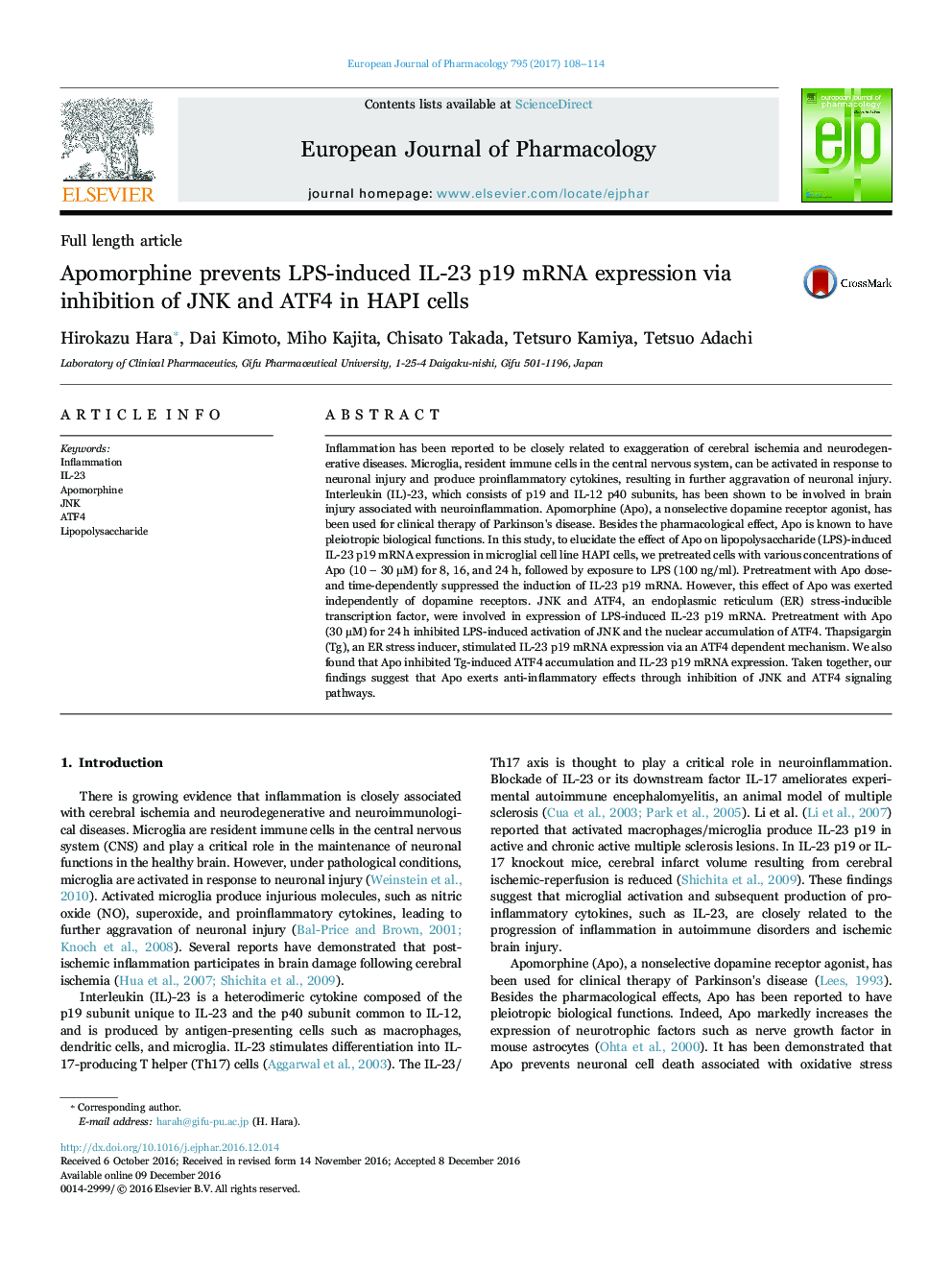| کد مقاله | کد نشریه | سال انتشار | مقاله انگلیسی | نسخه تمام متن |
|---|---|---|---|---|
| 5554740 | 1558885 | 2017 | 7 صفحه PDF | دانلود رایگان |

Inflammation has been reported to be closely related to exaggeration of cerebral ischemia and neurodegenerative diseases. Microglia, resident immune cells in the central nervous system, can be activated in response to neuronal injury and produce proinflammatory cytokines, resulting in further aggravation of neuronal injury. Interleukin (IL)-23, which consists of p19 and IL-12 p40 subunits, has been shown to be involved in brain injury associated with neuroinflammation. Apomorphine (Apo), a nonselective dopamine receptor agonist, has been used for clinical therapy of Parkinson's disease. Besides the pharmacological effect, Apo is known to have pleiotropic biological functions. In this study, to elucidate the effect of Apo on lipopolysaccharide (LPS)-induced IL-23 p19 mRNA expression in microglial cell line HAPI cells, we pretreated cells with various concentrations of Apo (10 - 30 μM) for 8, 16, and 24 h, followed by exposure to LPS (100 ng/ml). Pretreatment with Apo dose- and time-dependently suppressed the induction of IL-23 p19 mRNA. However, this effect of Apo was exerted independently of dopamine receptors. JNK and ATF4, an endoplasmic reticulum (ER) stress-inducible transcription factor, were involved in expression of LPS-induced IL-23 p19 mRNA. Pretreatment with Apo (30 μM) for 24 h inhibited LPS-induced activation of JNK and the nuclear accumulation of ATF4. Thapsigargin (Tg), an ER stress inducer, stimulated IL-23 p19 mRNA expression via an ATF4 dependent mechanism. We also found that Apo inhibited Tg-induced ATF4 accumulation and IL-23 p19 mRNA expression. Taken together, our findings suggest that Apo exerts anti-inflammatory effects through inhibition of JNK and ATF4 signaling pathways.
Journal: European Journal of Pharmacology - Volume 795, 15 January 2017, Pages 108-114